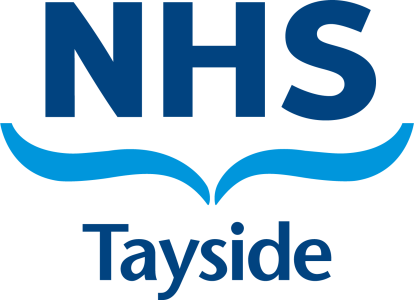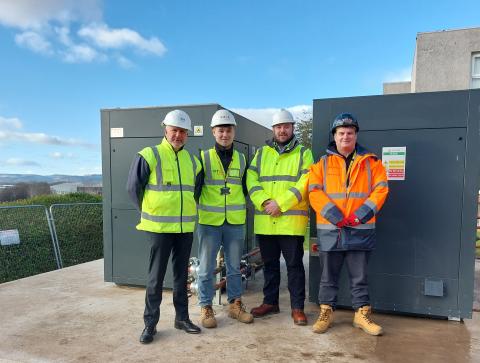NHS Tayside’s ambitious decarbonisation works will revolutionise how energy is generated and used.

NHS Tayside
Go To WebsiteAddressed Challenges:
- Tech & innovation
- Carbon emissions
Action Areas:
- Built Environment
- Energy
Initiative Purpose:
- Mitigation & Adaptation
The Story

At the heart of NHS Tayside’s vision for a sustainable future lies an ambitious decarbonisation project that’s transforming how energy is generated and used across three key healthcare sites. This isn’t just about new equipment – it’s about reshaping the future of healthcare delivery, making it cleaner, smarter, and more resilient.
In partnership with Vital Energi, NHS Tayside is undertaking a wide-reaching programme of upgrades at Abbey Health Centre in Arbroath, Westgate Health Centre in Dundee, and St. Margaret's Hospital in Auchterarder. These sites are becoming blueprints for sustainable healthcare, with innovations that prioritise energy efficiency, renewable energy, and patient comfort.
From the rooftops to the boiler rooms, change is underway:
- 269 rooftop solar panels will harness the power of the sun, generating 139kWp of clean electricity.
- Five high-performance heat pumps and 20,000 litres of thermal storage will provide reliable, low-carbon heating.
- New insulation and smart heating controls will prevent heat loss and optimise energy use, ensuring comfortable environments for patients and staff.
- 124 upgraded windows and 9 new doors will enhance energy retention, while 382 outdated light fittings are being replaced with smart LED lighting to cut energy waste.
Together, these enhancements are expected to save over 3,000 tonnes of carbon across the project’s lifetime – an important milestone in NHS Tayside’s journey to Net Zero. Mark Anderson, Associate Director of Facilities - Property at NHS Tayside, reflects: “This is a major milestone for NHS Tayside as we work towards our Net Zero goals. By investing in these energy-efficient technologies, we are not only reducing our carbon footprint but also creating more sustainable and efficient healthcare facilities for our patients and staff.”
Supported by £3.2 million in funding from the Green Public Sector Estate Decarbonisation Scheme (GPSEDS), the project aligns with the Scottish Government’s ambitious targets to eliminate fossil fuelled heating by 2038 and reach Net Zero across the public sector by 2040.
Success & Outcomes
Success for NHS Tayside’s decarbonisation project will be measured using a comprehensive set of indicators. Central to this is tracking the reduction in carbon emissions, with detailed monitoring of the tonnes of CO₂ saved annually and over the lifetime of the project. Energy performance will also be closely measured through changes in electricity and heating consumption, and renewable energy generation will be tracked by recording the output from the newly installed solar panels. Financial metrics, including reductions in utility costs, will help demonstrate long-term value for money. Operational performance will be evaluated through system reliability and ease of maintenance, supported by feedback from staff and facilities teams.
Advice for others looking to do something similar
https://www.nhstayside.scot.nhs.uk/News/Article/index.htm?article=PROD_385626
